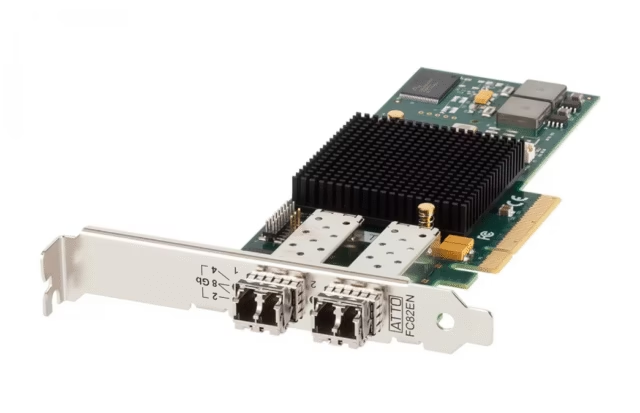Information is increasing at a quicker pace than ever. Statistics indicate that the world is producing over 328 million terabytes of data daily in 2025. This massive expansion demands that storage systems transfer data at high speeds and securely.
Companies today require storage networks to transfer data fast without lowering speed. Fibre Channel is a long-standing choice for storage. It is dependable and fast. But today’s storage requirements are not the same as they used to be.
Today, workloads are sophisticated. Applications require real-time access to data, and organizations desire performance and security simultaneously.
This raises a big question: Can Fibre Channel meet these new challenges and remain the foundation for storage area networks?
Read on to find out the details!
Fibre Channel at a Glance
Fibre Channel is a technology designed for transporting data in storage area networks. Large enterprises and data centers utilize it. It links servers to storage at high speeds with minimal delays. In contrast to regular networks, Fibre Channel is designed exclusively for storage traffic, which increases its stability and security.
- Fibre Channel provides high performance for mission-critical data.
- It is supported at speeds ranging from 16 Gbps to 128 Gbps.
- It gets along with both physical and virtual environments.
- It minimizes data loss with robust error control.
Why Businesses Continue to Use Fibre Channel
Most people wonder why Fibre Channel remains popular. The answer is easy: It delivers predictable performance. Companies know they can trust it to deliver steady speed and uptime, making Fibre Channel a compelling option for workloads such as banking, healthcare, and government systems.
Changing Modern Storage Demands
Storage requirements nowadays are not what they were a decade ago. Data is being generated from various sources these days. Applications operate on cloud, hybrid, and edge environments. Workloads such as AI, big data, and machine learning require faster access to massive datasets.
- Companies now desire storage that scales without going offline.
- They require systems supporting both on-premises and cloud configurations.
- Security is necessary since cyber attacks are on the increase.
- Automation is the solution to save time and minimize human error.
Fibre Channel and New Workloads
The question is whether Fibre Channel will be able to adapt to these demands. The answer is affirmative in several ways. New generations of FC are more flexible and faster. They support new storage features such as NVMe over Fibre Channel. Thus, it is possible to manage workloads that require low latency and high speed.
Strengths That Keep Fibre Channel Relevant
Fibre Channel still plays a significant part since it possesses attributes that newer storage systems continue to require.
- Reliability: Fibre Channel provides data without interruption or delays.
- Security: It employs zoning and authentication to ensure data protection.
- Low latency: It transfers data quickly than most conventional networks.
- Scalability: It accommodates expansion without significant system change.
The Role of NVMe over Fibre Channel
One of the most significant advancements is NVMe over FC. It enables servers to access storage at even lower latency. This aids in AI and analytics workloads. Companies can leverage their current FC infrastructure and layer on NVMe support. This is cost-saving and performance-enhancing.
Challenges Fibre Channel Faces Today
Despite strengths FC is not immune to issues. New storage infrastructure and cloud technologies are inducing competition. Ethernet based solutions are less expensive and simpler for some configurations.
- Fibre Channel can be expensive to implement and support.
- It requires trained personnel to operate and administer.
- It is complex to integrate with new cloud platforms.
- Some companies shift towards Ethernet and iSCSI to save on costs.
Can Fibre Channel Overcome These Challenges
The market is attempting to make Fibre Channel more affordable and simple. New tools enable improved automation and monitoring, and vendors are incorporating features for cloud integration. These measures position FC as a more appropriate choice for organizations seeking hybrid storage networks.
Future of Fibre Channel in Modern Storage
Fibre Channel isn’t disappearing any time soon. It remains solid where performance and security can’t fail. Banking healthcare and telecom are a few. Meanwhile FC is evolving to address new workloads.
- New releases offer higher speeds, such as 128 Gbps and more.
- Vendors continue to enhance automation and cloud support.
- NVMe over FC will continue to enhance AI and data analytics performance.
Is Fibre Channel Enough for Tomorrow
The future will be hybrid. Some companies will utilize Fibre Channel for critical workloads, while others will utilize Ethernet or cloud storage. FC’s true advantage will be that it can coexist with these platforms. It will continue to act as a backbone while being capable of supporting hybrid environments.
Conclusion
Fibre Channel has done a great job for many years. It has moved data safely and fast. It is still used in big places that need power and trust. But the world is changing. Data is growing. Cloud and AI are taking over. New systems are cheaper faster and easier to use.
Fibre Channel is not gone yet. But it must work hard to keep up. If it does not change more it may slowly be left behind.
So, can Fibre Channel keep up with modern storage needs The answer is yes for now but maybe not for long.







